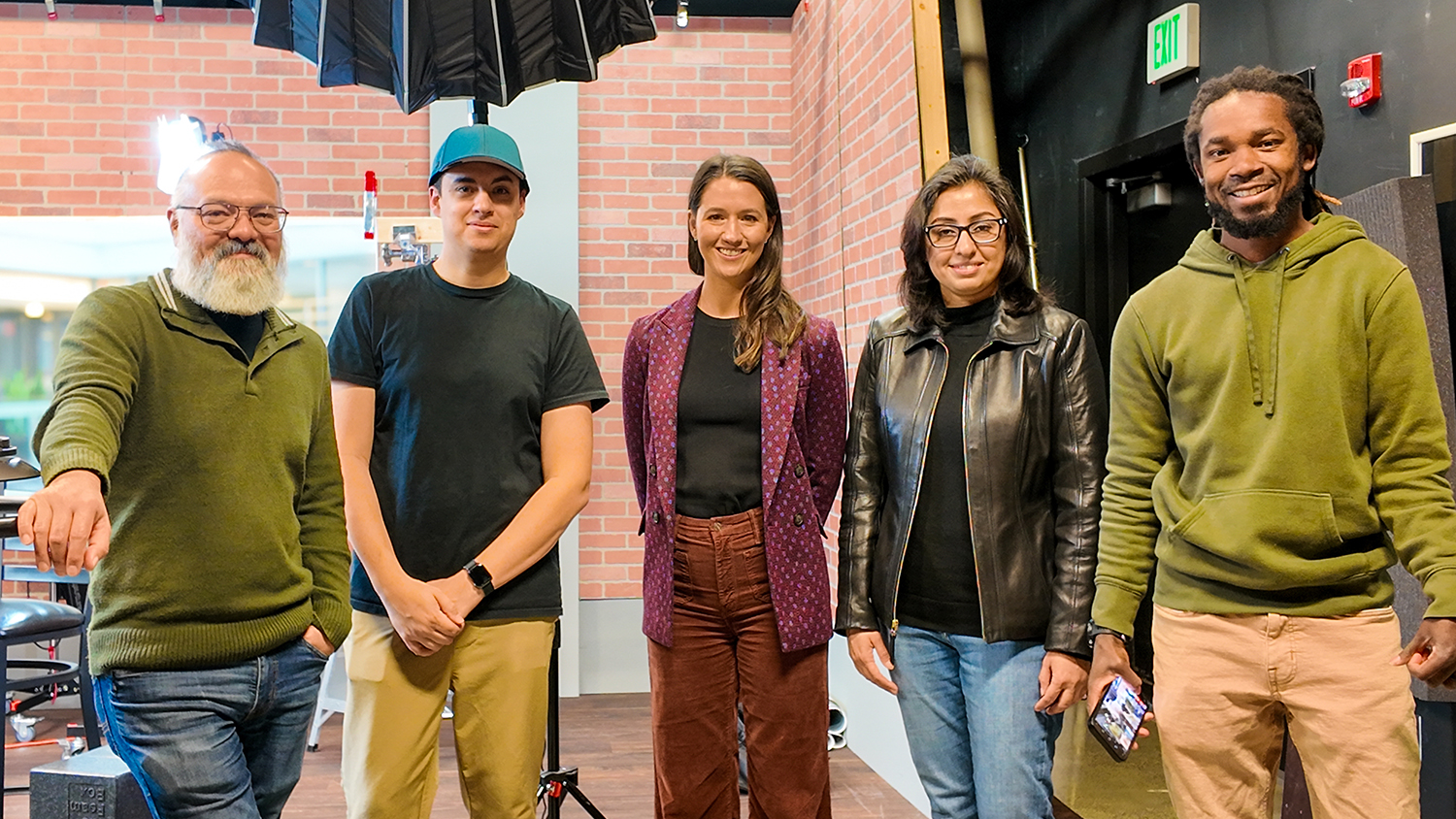DELTA Team Members Attend Global Conference
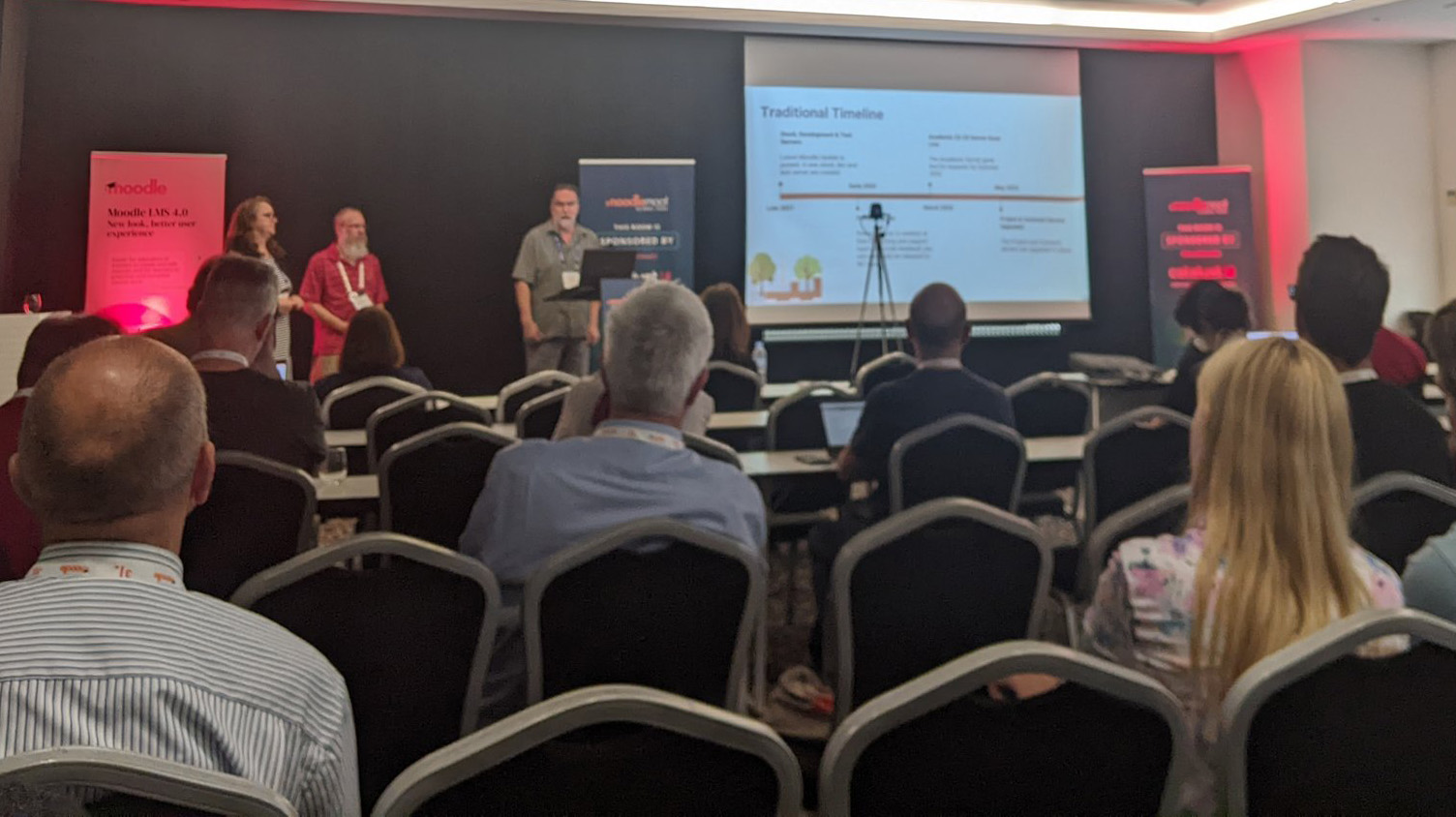
We were honored and proud to represent NC State at the Global Moodle Moot in Barcelona, Spain, in September. Moodle hosts only one global conference every year and after two years as an online event, it returned as an in-person event.
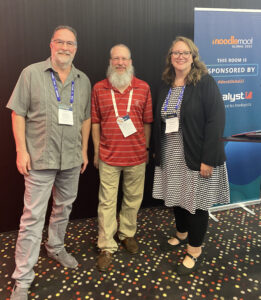
This event brings Moodle users and developers together from all over the world — this year the event hosted more than 800 attendees. Our team was given an amazing opportunity to hear presentations from and talk with Moodlers from all over the world. One of the main advantages of attending the Global moot over a regional US event is meeting in-person many of the people we have interacted with over the years in the global Moodle community. While we have conversed and worked with them online for many years, it was nice to have time to sit down and discuss issues in person.
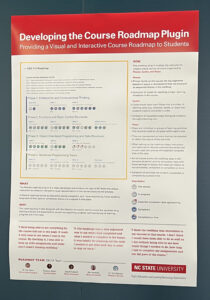
We also had four proposals accepted by the conference that focused on our migration to Moodle 4.0 (both from a technical perspective and from a training perspective), our feature request process for improvements to Moodle, and the creation of the Roadmap plugin that allows for students to easily see how activities are connected to learning objectives in a course as well as track their progress. Our sessions were highly attended and generated great discussion before and after they occurred.
Founder and CEO Martin Dougimas has a passion for open-source technology and the facilitation of using that technology for educational purposes. His keynote focused on the ways to empower educators and the future of education with advancements in machine learning, AI and connectedness.
One of the unique aspects of this conference is that many of the sessions were relevant to our Moodle Developers on DELTA’s Educational Technology Services team as well as those who work with faculty to utilize Moodle in their online courses. Getting to see both perspectives of Moodle was extremely valuable and led to some great discussions on our own team about what we value and prioritize.
Workshop and Presentation Recap
One of the pre-workshop events was the Moodle Dev Jam where team members were able to talk with some of the Moodle developers working on the new report builder and custom reports to get a better understanding of its uses and limitations.
There were several interesting talks from other universities that run large Moodle installs about how they handle course copies, upgrades and server configuration. A few of these will be discussed as DELTA works on next year’s Moodle upgrade plans.
There were two good sessions on the Moodle Mobile App, one discussing the new features in the latest version and one discussing how to address (hopefully preventively) issues your users might face when using the mobile app. As a follow-up on this, DELTA will be evaluating the adoption of an NC State branded version of the Moodle Mobile App.
It was also an opportunity to see vendors that are either Moodle specific, or very well integrated into the system. Poodll has been used on campus for over ten years. It was impressive to see the improvements they have made and we are excited to reinvigorate its usage on our campus.
Intelliboard, a product that we have recently implemented, showcased how their Learning Analytics tool is used by universities and instructors to gain greater insight into student activity. They provided insight on ways that analytics can help instructors make decisions about improving their course as well as intervening with their students.
Brickfield is a new accessibility plugin that NC State is investigating. It was great to get an overview of the product from the creator and to see their motivation to educate instructors and help future-proof courses. Their tool can be a way to help faculty design courses with accessibility in mind.
Overall Impression
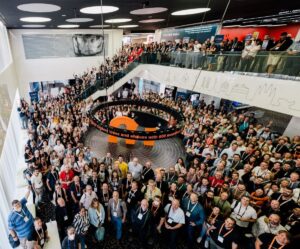
The Global Moodle Moot was truly an inspiring experience and it was amazing to hear from so many Moodlers that are passionate about making a difference with technology. It was enlightening to see programmers and practitioners work side-by-side to answer issues arising across institutions. It reinforced the power of an open-source product that can be shaped by those who use it.

